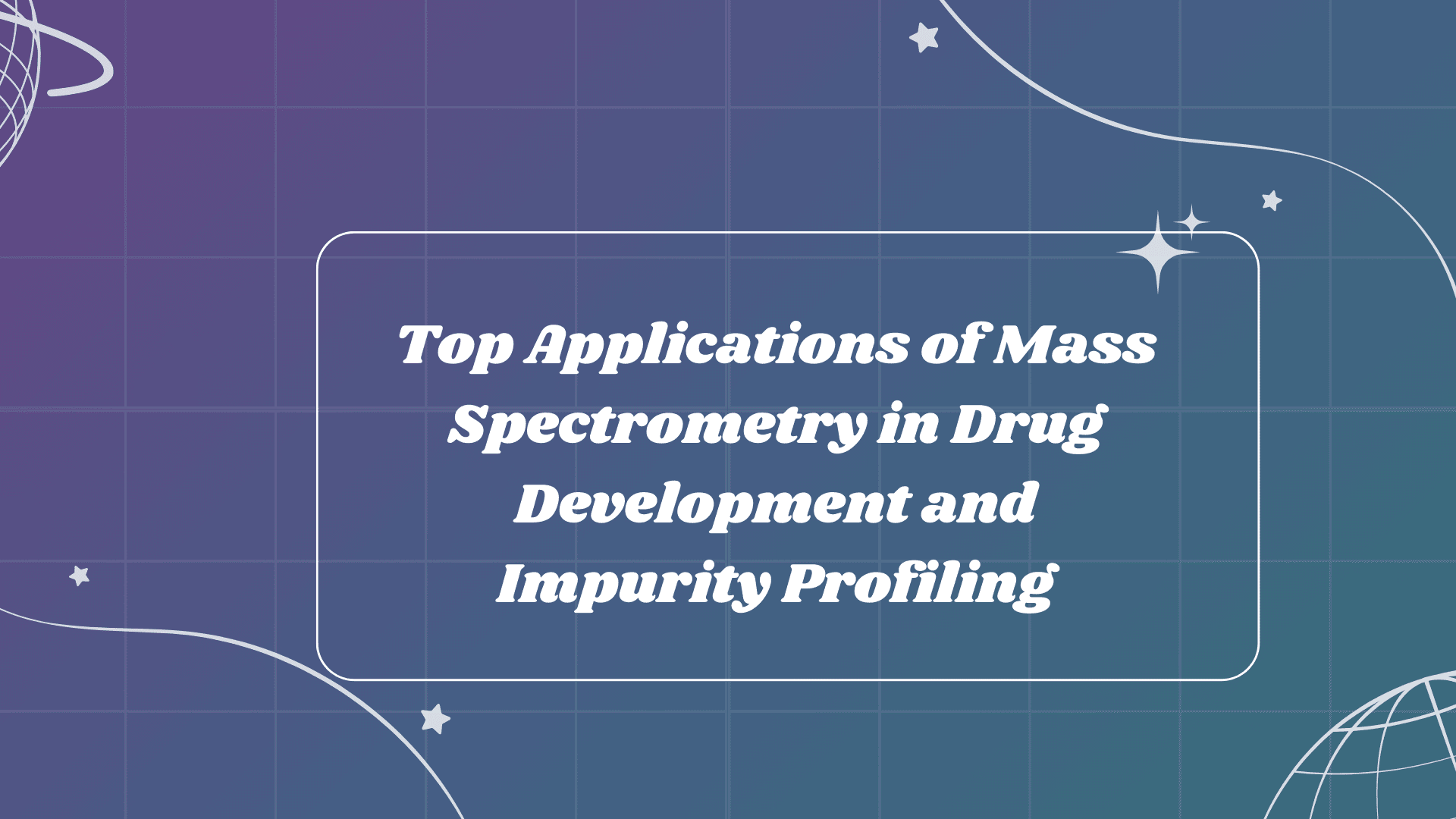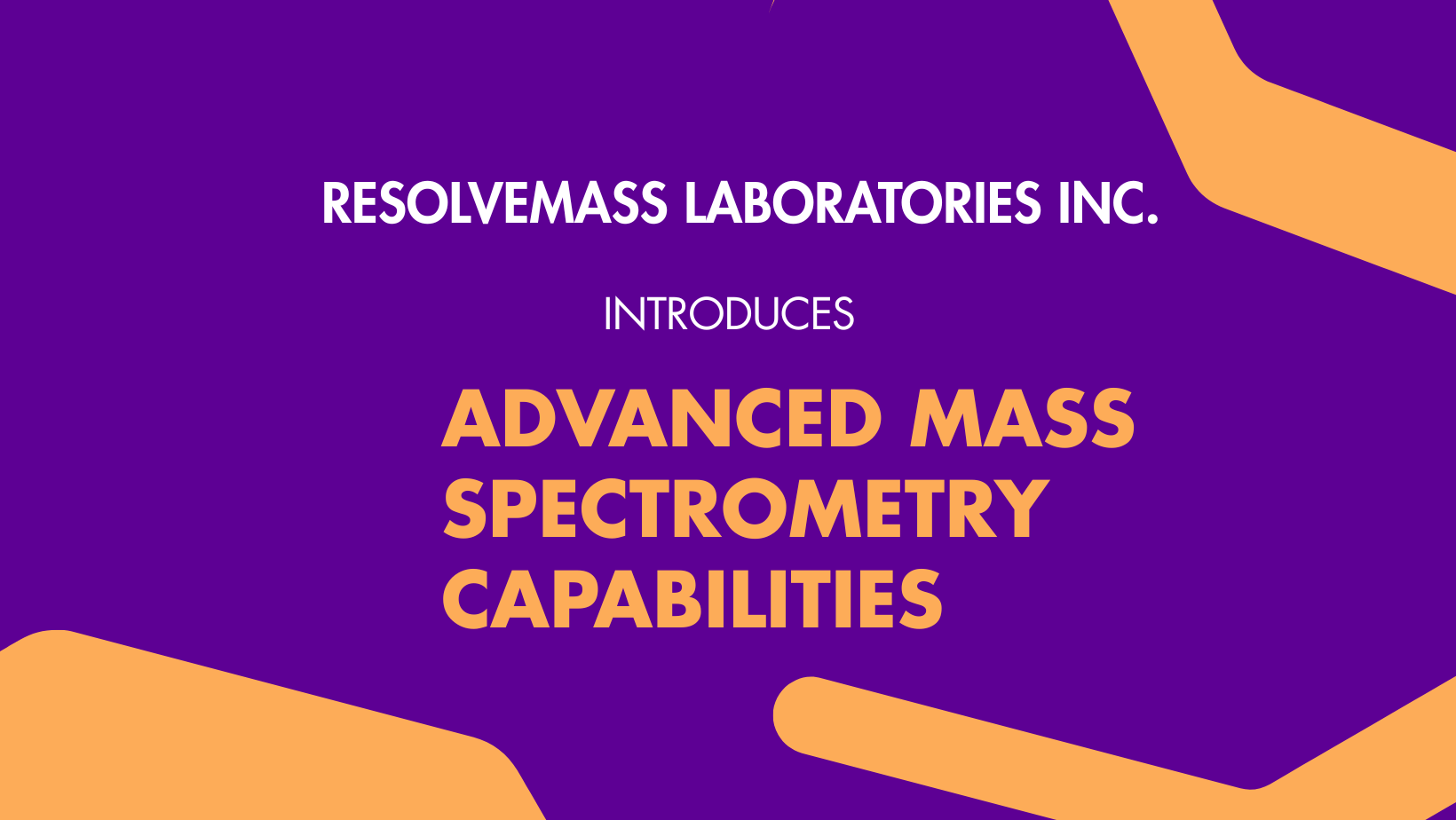Summary (Key Points)
- Mass Spectrometry Experts in Drug Development play a vital role in drug discovery, impurity profiling, and regulatory compliance.
- They identify impurities, quantify biomarkers, and validate candidate molecules with unmatched accuracy.
- Key applications range from impurity profiling and bioanalytical quantification to proteomics and lipidomics.
- Impurity assessment—including nitrosamine analysis, extractables & leachables, and residual solvent testing—ensures patient safety and regulatory approval.
- Partnering with ResolveMass Laboratories’ Mass Spectrometry Experts in Drug Development gives pharma companies access to specialized expertise and advanced instrumentation.
Introduction: Why Mass Spectrometry Experts in Drug Development Are Essential
Drug development is one of the most complex and highly regulated industries. Every stage, from discovery to clinical trials, requires precision and compliance with strict safety standards. Mass Spectrometry Experts in Drug Development play a vital role in this process by providing accurate analysis, impurity profiling, and biomarker quantification that guide critical decisions.
At ResolveMass Laboratories, our team combines advanced instrumentation with years of scientific expertise. This ensures reliable results, faster approvals, and reduced risks for pharmaceutical companies. By applying mass spectrometry at every stage, we help partners streamline development while maintaining regulatory confidence and patient safety.
The Central Role of Mass Spectrometry in Drug Development
Mass spectrometry provides the accuracy and sensitivity required to support modern pharmaceutical innovation. It is not only used for molecular characterization but also for ensuring compliance with global safety standards. Without it, drug development programs risk delays, regulatory rejection, and potential threats to patient health.
| Pharma R&D Stage | Contribution of Mass Spectrometry Experts in Drug Development | ResolveMass Capabilities |
|---|---|---|
| Discovery Phase | Characterization of peptides, proteins & drug candidates | Peptide Sequencing, Proteomics |
| Preclinical Phase | Toxicity, impurity detection, pharmacokinetic assessments | Impurity Profiling, Lipidomics |
| Clinical Phase | Biomarker quantification, personalized medicine development | Bioanalytical Quantification, Biomarker Quantification |
| Regulatory Filing & QC | Nitrosamine testing, extractables & leachables, residuals | Nitrosamine Analysis, Solvent Testing |
Key Applications of Mass Spectrometry Experts in Drug Development
1. Impurity Profiling & Characterization
- Essential for safeguarding drug safety and meeting regulatory expectations.
- Detects impurities at ultra-trace levels, even in parts per billion.
- Identifies harmful compounds such as nitrosamines through advanced analysis.
- Ensures compliance with extractables and leachables testing for packaging and delivery systems.
2. Bioanalytical Quantification in Clinical Studies
- Measures drug concentration in biological samples to support PK and PD studies.
- Bioanalytical quantification by mass spectrometry delivers accurate, reproducible, and regulatory-ready results.
- Tracks low-level metabolites and biomarkers with high-sensitivity methods.
- Enables optimized dosage decisions and strengthens clinical trial outcomes.
3. Biomarker Discovery and Quantification
- Biomarkers drive personalized medicine and improve trial design.
- Mass spectrometry experts applies biomarker quantification tools to correlate molecular signatures with therapeutic outcomes.
- Enhances patient selection, reducing trial failures and improving success rates.
- Supports precision treatment strategies in oncology, neurology, and rare diseases.
4. Peptide and Protein Analysis
- Critical for biologics and biosimilars in today’s pharmaceutical pipelines.
- Mass Spectrometry Experts in Drug Development provide peptide sequencing and de novo analysis.
- Advanced peptide characterization safeguards therapeutic structure and function.
- Proteomics workflows support discovery, validation, and regulatory compliance.
5. Lipidomics and Metabolic Studies
- Lipid profiling reveals critical insights into disease pathways and drug response.
- Identifies lipid biomarkers relevant to oncology, neurology, and metabolic research.
- Supports the development of lipid-based drug delivery systems for better absorption.
- Advances precision medicine through mapping of lipid metabolism.
6. Residual Solvents, PFAS, and Environmental Contaminants
- External impurities can compromise product safety and compliance.
- Residual solvent testing ensures adherence to global ICH guidelines.
- PFAS analysis detects toxic per- and polyfluoroalkyl substances at trace levels.
- Pesticide screening via GC-MS confirms compliance with pharmacopeial standards.
Why Choose ResolveMass Mass Spectrometry Experts in Drug Development
Working with ResolveMass provides unique advantages:
- Deep Expertise: Scientists with extensive experience in method development, validation, and troubleshooting.
- Regulatory Confidence: Workflows aligned with FDA, EMA, and Health Canada standards.
- Comprehensive Solutions: Services covering impurity profiling, proteomics, lipidomics, and bioanalysis.
- Audit-Ready Data: Fully validated packages that minimize the risk of rejection.
- Cutting-Edge Facilities: High-throughput labs with advanced detection capabilities.
By choosing ResolveMass, pharmaceutical companies gain a trusted partner who combines scientific excellence with regulatory foresight, ensuring safe and successful drug development.
Conclusion
The pharmaceutical pipeline leaves no room for error, making analytical precision a must. Mass Spectrometry Experts in Drug Development provide the accuracy, safety, and compliance needed at every stage, from discovery to regulatory submission.
ResolveMass Laboratories offers specialized expertise, advanced technology, and proven methods to help companies overcome challenges and accelerate innovation. Whether it is impurity profiling, biomarker quantification, or protein analysis, we deliver results that support safe and effective therapies.
Pharma companies that partner with ResolveMass gain more than data, they gain confidence, compliance, and a competitive advantage in bringing life-saving drugs to patients.
Contact ResolveMass Laboratories
📩 Begin your journey toward safer, faster drug development with our experts:
FAQs: Applications of Mass Spectrometry in Drug Development
They are essential because they ensure precise detection of impurities, accurate molecular characterization, and reliable quantification of biomarkers. These insights support the development of safe medicines while reducing risks of recalls and delays. Their expertise helps pharmaceutical companies maintain confidence in every stage of research.
Experts use advanced tools like LC-MS, GC-MS, and high-resolution MS to detect impurities with high accuracy. These methods help identify nitrosamines, residual solvents, and other unwanted substances. By applying multiple techniques, they ensure thorough testing that meets strict safety and compliance standards.
Mass spectrometry provides validated and reproducible data that align with FDA, EMA, and ICH requirements. By using approved methods, companies can present strong evidence during regulatory submissions. This helps accelerate approvals while reducing the risk of data rejection.
Yes, it is widely used to analyze complex molecules such as peptides and proteins. Through proteomics and peptide characterization, experts ensure biologics maintain their correct structure and function. This is critical for meeting quality standards and gaining regulatory approval.
It plays a key role by quantifying biomarkers and analyzing lipid profiles unique to each patient. This information allows experts to tailor treatments to individual molecular signatures. As a result, therapies become more effective and targeted, improving patient outcomes.
Ideally, Mass Spectrometry Experts in Drug Development should be engaged from the discovery phase. Early involvement helps optimize molecular characterization, identify potential impurities, and guide biomarker detection strategies. This proactive approach saves time and reduces costly setbacks later.
Get In Touch With Us
References
- Martins, D. N., Vendramini, P. H., Simionato, A. V. C., & Sussulini, A. (2022). Introduction to bioanalytical mass spectrometry. In L. T. Kubota, J. A. F. da Silva, M. M. Sena, & W. A. Alves (Eds.), Tools and trends in bioanalytical chemistry (pp. 317–338). Springer. https://doi.org/10.1007/978-3-030-82381-8_23
- Klont, F., & Hopfgartner, G. (2021). Mass spectrometry-based approaches and strategies in bioanalysis for qualitative and quantitative analysis of pharmaceutically relevant molecules. Drug Discovery Today: Technologies, 40, 64–68. https://doi.org/10.1016/j.ddtec.2021.10.004


